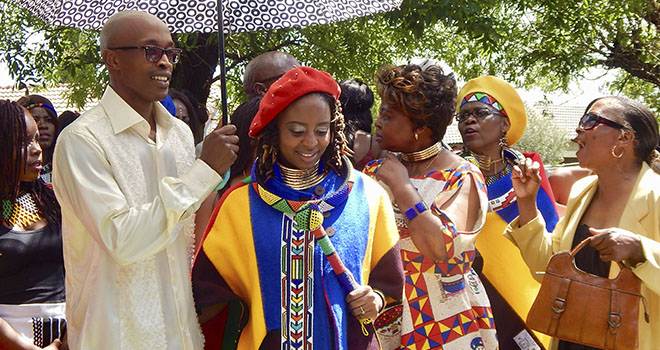On 1 June this year, President Cyril Ramaphosa approved the amended Customary Marriages Bill. This is a significant step towards equality for women in South Africa.
Moremadi Mabule, Head of Wills at Sanlam Trust, explains that women who are married under the Customary Marriages Act will now be entitled to a share of the joint estate on either the death of their spouse or when they divorce. This excludes couples who have a notarial marriage and antenuptial contract excluding community of profit and loss.
Mabule says that the process to amend the Customary Marriages Act started over 4 years ago in the Constitutional Court, with recent judgments finding the Act to be inconsistent with the Constitution and therefore invalid. The previous Customary Marriages Act, which came into effect on 15 November 2000, came under scrutiny when the Constitutional court found it to be discriminatory against women, and particularly women in polygamous marriages. The act was also found to be discriminatory on the basis of gender and race.
Mabule notes that the amended act focuses specifically on the sharing of ownership of property and the rest of the estate. For couples who choose to enter a customary marriage in future, it means that if you do not execute an ante-nuptial contract, you will by default be married in community of property. This would apply to both polygamous and monogamous customary marriages.
Mabule explains that the new act does not change the way customary marriages are concluded or celebrated. While these customs remain unchanged, what does change is that women in customary marriages will now have the same rights and status as other women and men in South Africa and will not be discriminated against.
Women who were married into polygamous or monogamous marriages before November 2000 when the previous Customary Marriages Act came into effect, are also included in the amended act. Mabule explains that these women will now have the same rights and status in terms of their lawful entitlement to their share of their partner’s estate and be classified as married in community of property.
“The recognition of Customary Marriages Amendment bill by the President is significant in restoring the dignity of South African women when it comes to their place in society”, concludes Mabule.




Re Amended Cust Marriages Act
Firstly does the law require each poly marriage to be registered ?
How will the estate be divided assuming the guy has 3 wives and major and minor children from each of them ? He owns one fixed property , a pension fund from his employer ?
Hi Robin. Good question. I think the options are endless. Each situation will have to be resolved on its own merits. We share the news, but can unfortunately not respond in a legal capacity. That’s where the lawyers will come into play.
Re Amended Cust Marriages Act
Firstly does the law require each poly marriage to be registered ?
How will the estate be divided assuming the guy has 3 wives and major and minor children from each of them ? He owns one fixed property , a pension fund from his employer ?
Hi Robin. Good question. I think the options are endless. Each situation will have to be resolved on its own merits. We share the news, but can unfortunately not respond in a legal capacity. That’s where the lawyers will come into play.